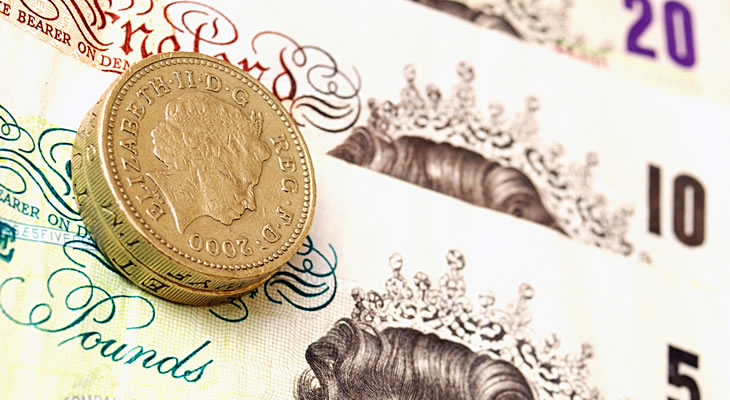The Pound (GBP) has held onto its prior gains against the Australian Dollar (AUD) on 24th April, continuing to rise by 0.3% in the pairing.
This latest advance follows the news that the UK budget balance has hit a surplus, for the first time in 16 years in March.
Less was borrowed than the Office for Budget Responsibility (OBR) had suspected, leaving the UK with a rare budget surplus.
Despite the positive implications of the news, few economists predicted a sudden surge in spending from Chancellor Philip Hammond.
(Last updated 24th April, 2018)
The Pound to Australian Dollar (GBP/AUD) exchange rate has risen by 0.3% on the afternoon of 23rd April, as mounting pressures in Australia weigh on the AUD.
The most recent factor causing a drag on the AUD has been the concern that efforts to prevent China influencing political parties could disrupt trade.
China’s Ambassador to Australia, Cheng Jingye, has responded to the latest Australian government shutdown by warning that;
‘Some Australians, a minority, always see China through coloured lenses — totally dark glasses.
‘If you have a deep-rooted prejudice against somebody or some thing, you may find everything in a twisted manner and you cannot come to a rational judgment’.
Responding to the comments, AU Prime Minister Malcolm Turnbull has done his best to offer reassurance;
‘We have a very strong economic relationship with China, in fact, it’s strengthening all the time.
‘From time to time there are differences in the relationship, if there are ups and downs, it’s from a very, very high base.Trade has never been higher in every respect’.
(First published 23rd April, 2018)
GBP/AUD Exchange Rate could Rise if Commons Backs Post-Brexit Customs Deal
The Pound (GBP) has made a minor advance against the Australian Dollar (AUD) today, ahead of what could be an influential vote on Brexit in the House of Commons.
After a majority of peers backed the UK remaining in a customs union with the EU after Brexit, MPs will be voting on the matter in the House of Commons this week.
Government spokespeople have insisted that the UK will leave any union no matter what, so this week’s vote is largely expected to be a symbolic action.
That said, if a bulk of MPs do support the UK remaining in a customs union then Pound exchange rates could noticeably improve.
May UK Interest Rate Hike could Push Pound to Australian Dollar (GBP/AUD) Exchange Rate Higher
Another less concrete factor that could boost the Pound to Australian Dollar exchange rate (GBP/AUD) will be any Bank of England (BoE) interest rate decisions.
At the beginning of April, it had seemed almost-guaranteed that BoE policymakers would hike interest rates in May.
Following an inflation rate slowdown and a number of dovish statements from BoE Governor Mark Carney, however, the perception is that a May rate hike is less likely.
The odds of a UK rate hike in May have now fallen to the region of 50%, making predicting the month’s BoE actions a difficult prospect.
If policymakers do decide that the UK economy can handle higher interest rates and commit to a hike, then a GBP/AUD exchange rate rally could take place.
Will Higher AU Inflation Force Australian Dollar to Pound (AUD/GBP) Exchange Rate Advance?
Upcoming sources of Australian Dollar to Pound (AUD/GBP) exchange rate movement include high-impact Q1 inflation rate readings out on 24th April.
The stats are predicted to show a rise in year-on-year inflation (compared to the first quarter of 2017), but a quarter-on-quarter decline.
Higher annual inflation could raise confidence among Australian Dollar (AUD) traders, leading to an AUD/GBP advance.
If inflation levels pick up then policymakers at the Reserve Bank of Australia (RBA) may be spurred into implementing a long-awaited interest rate hike before 2019.
Cautious Outlook from RBA’s Kent could Trigger AUD/GBP Exchange Rate Drop
Before the AU inflation rate figures are released, the Australian Dollar (AUD) could see a sudden drop against the Pound (GBP) when RBA official Christopher Kent speaks.
Making remarks in the near-future, Mr Kent could inadvertently weaken the Australian Dollar if he suggests no immediate policy adjustment.
Among other factors, RBA policymakers have resisted tightening monetary policy due to perceived economic weakness stemming from slow wage growth.
If Mr Kent reiterates that higher inflation may not cause any change to the official RBA outlook then the Australian Dollar to Pound exchange rate could decline.


Comments are closed.